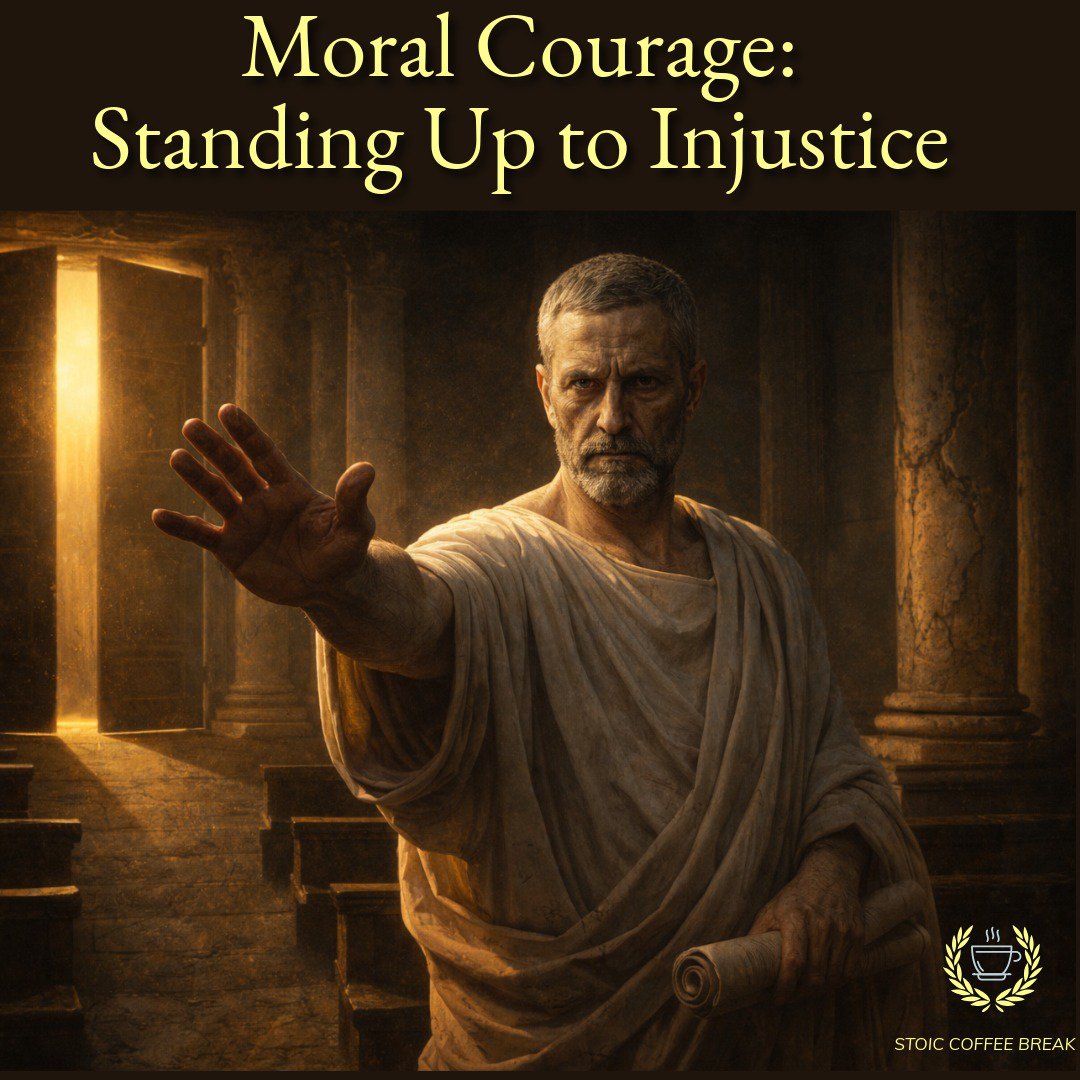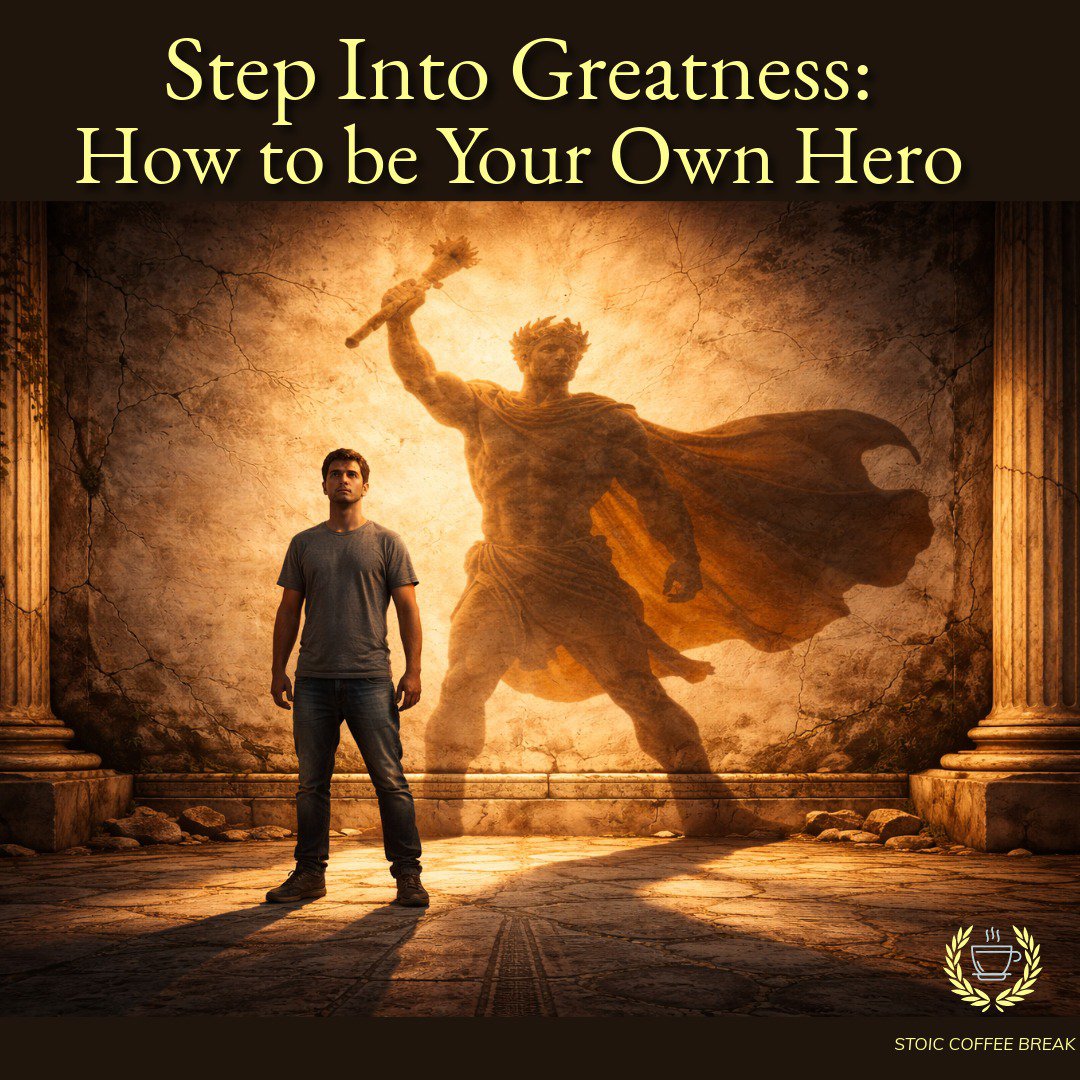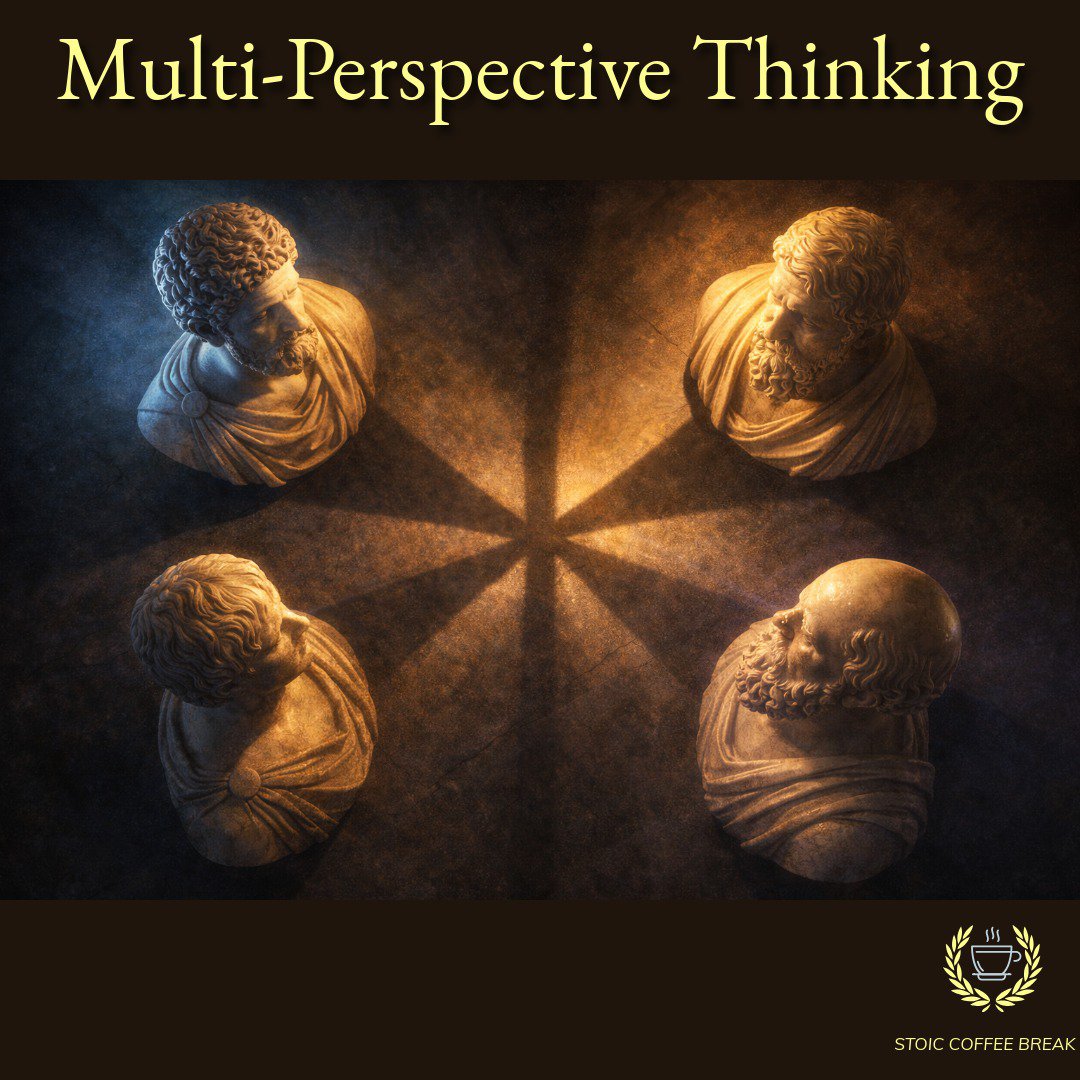
Today's episode is about stoics and emotions.
So earlier this week on reddit, in the stoicism subreddit, somebody posted a link to an article in Psychology Today called stoicism as a fad of philosophy. I decided to take the time to read the article and surprisingly I found that my podcast was mentioned in the second paragraph and called my podcast noncommittal, which I take as not an insult, but as very true about what I try to do with this podcast. I do my best to take stoicism and give it to my listeners in such a way that they can apply it in their daily lives. I don't think that you need to commit yourself to being a hardcore stoic one way or the other, but that you can find things within this philosophy that help you to live a better life.
Now the article was okay. There are definitely some problems that I had with the article, although I did appreciate the shout out I guess. The first part she spends a lot of time, I'm sorry, she is Mariska Olivia, I'm sorry if I didn't pronounce that correctly doing the best I can. She is an associate professor of philosophy at the University of Colorado and Denver and the issues that I had with this article was simply that, you know, first off she talks about it as a fad and the reason why this has become so popular right now, is simply because Ryan Holiday is a great marketer and while yes, a lot of people have heard of stoicism because of Ryan Holiday, I think that she's missing a giant point there of why stoicism has really picked up.
For me, I look at stoicism as something that is really filling a number of things that a lot of people need. So for people like me, I just turned 50 this year, if you can believe that! I would be considered part of the Gen-X generation. I grew up as you all know, I grew up mormon and found their religion was something that did not work for me. It was something that actually made my life much more miserable. But there were aspects of religion that were very helpful for me, but they really didn't, unfortunately in my case, outweigh the negatives of being in religion.
I can see that religion as a whole has been very detrimental to a lot of people and it's something that's been very abused and so I think right now there is a lot of need for people to have a kind of moral framework, if you will, to view life through, that doesn't have all of the abuses that go along with it, that we find in traditional religions today. And so for me, I look at stoicism is definitely fulfilling a lot of these needs. And part of the reason why is because it is something that it contains a lot of what I call universal principles, meaning there are things that seem to makes sense no matter where you are or who you are, and there are things that you can try and you know what they work, and that for me is what stoicism is all about.
It's a practical philosophy that actually is something that helps you in your life. It's not just some esoteric, you know, thought idea that people want to sit and argue about, but it's real practical principles about how to live a better life. It's not something that you have to take as dogma. You don't have to take the whole thing and say, I have to live exactly this way. There are just lots of principles that can help you in different aspects of your life, but it's put together in a decent framework, so you have a good foundation to kind of help guide your life when find yourself in challenging situations.
There was another part of her main points of the article that I definitely had a bone to pick, and I wanted to bring that up today. She talks about how stoicism is used to basically get rid of emotions, and she says if you refuse to make a deep emotional investment in anything, you will likely miss the joy that accompanies success, not simply avoiding the pain of failure. She also says that stoicism is thus a bit like those drugs for bipolar disorder that cause emotions to flatline and help avoid the lows at the cost of sacrificing the highs. And this is something I really disagree with because for me, stoicism is not about divorcing yourself from emotions or turning off all of your emotions. Stoicism for me is about understanding how your emotions are created, how your emotions affect you, how the thoughts in your head, the stories that you tell yourself create a lot of these emotions and how by understanding these things, you can manage your emotions better.
I mean, I see stoics as people who not who are not avoiding emotions but are so comfortable with emotions that they can move in and out of them really easy. They can sit in those heavy, dark, challenging emotions and they don't act like everybody else does or how how you think they should. And that's really what it comes down to is that stoics take their time so that they can be in charge of their emotions. They don't respond like a lot of people do in the situation.
So Seneca did a really good job of explaining this when he said, “Everyone faces up more bravely to a thing for which he has long prepared himself sufferings. Even being withstood if they have been trained for in advance, those who are unprepared on the other hand are panic stricken by the most insignificant happenings.”
I mean a good metaphor for this is that if you come upon a fire and somebody's house is on fire, usually the people who are trying to escape are kind of freaking out. They are doing their best to get out of the house as fast as they can. And most people in a dangerous situation like that are are working off of pure instinct. They're doing their best to just get out of there as fast as possible. But if you are a firefighter and you are well trained and you know how to handle yourself in a firefighting situation, you're going to come up on a situation like this and your reaction, your response is going to be very very different for a number of reasons. One, because you've trained because you're comfortable in that situation, you're comfortable in this situation that brings a lot of fear and anxiety to your average person.
A stoic is very much like this. They're okay with uncomfortable emotions. In fact they can sit with them and they practiced being okay with these dark emotions. So they're not repressing these emotions, they're just learning how to sit with them and deal with them in a much healthier way rather than allowing these emotions to overtake them and cause them to do things that they might regret later on.
I mean the stoics feel their emotions just as much as anyone else. When someone dies, for a stoic, they grieve just as much as the next person. They just don't let that grief overcome them to the point of inaction. Stoics strive to be emotionally mature. This means that rather than reacting like most people would, stoics practice mindfulness in a way that allows them to see the situation for what it really is and act in the way that's going to be most helpful.
The way I see it as a stoic is kind of one step ahead of the game. They are not easily upset by things because when they come upon a situation, they’re so mindful of their own emotions that they're able to, again, manage them in a way that's going to be most beneficial for everybody in the situation. It doesn't mean they turn them off. It just means that they can step past those emotions, they can step past that fear, they can step past that anger and act in a way that's going to be more helpful than giving in to those emotions.
Because of this mindfulness, when things are challenging ,when there's a crisis, they know that losing their shit would cause more harm than good. And so they use their rationality to serve those around them rather than being upset about the awfulness of their circumstances. They recognize that they always have a choice to do something of value in any situation. Even if those choices are very limited. A stoic takes their time to examine and get to know their emotional states and to be curious about what they're feeling. They learn to sit with these emotions, especially when those emotions are uncomfortable. They don't repress those emotions, but they get comfortable with them.
They're able to sit in any emotional state, knowing that it will most likely be short lived and that it can change in an hour or even just a few minutes. So the stoics have given us a lot of tools to be able to manage our emotions better. And one of the biggest tools, you know, we've talked about this before is the idea of negative visualization or premeditato malorum, which is to sit down and think about in any situation, what's the worst thing that can happen And this can be applied in all kinds of situations.
If you're planning a trip, sometimes sitting down and thinking about what's the worst thing that can happen canan do a number of things. It can help you to notice things that you may not have thought of before. It can help you be more prepared when those things happen.
Another way that it's used is that we imagine what it would be like for those that we love to not be here with us, to have died. And we understand that it's kind of like a pre-grieving process and we we feel that feeling of what it would be like if this person were no longer in our life, we feel that grief already. And part of why this is such a powerful thing is that we get ourselves used to feeling that that kind of sadness. But then when we let go of that, when we recognize that this is just something that we're creating in our minds and we let it go, we appreciate that person because they're still alive and we appreciate them even more in our life and how much they mean to us.
And, for me, we actually deepen our feelings and we appreciate the fact that they are still with us now and so that we have more joy when we're around them. So that practice is a simple practice of imagining what it would be like to be without those we love can help deepen our relationships and our feelings about those person.
Now, don't get me wrong. I think that anytime somebody criticizes stoicism or tries to point out things that are probably wrong with stoicism, I think that's really helpful. And in this case I read the article and even though I disagreed with it, I do find that there are people who oftentimes use stoicism as a tool to repress their emotions and that's not something that stoicism really should be used for.
But I think that we should look at these criticisms and say, “Is that something that's really happening?” And one of the things that I have noticed on reddit in the stoicism subreddit, is that there are quite a few people who talk about using stoicism as a way to limit their emotions as a way to stop feeling a lot of things. And these are usually people who are new to stoicism and they're usually people who are probably in a lot of pain, and sometimes kind of numbing out that pain can be helpful for a time in order for them to get to a place where they can deal with those emotions better.
But if you're using stoicism as a way to simply avoid all negative emotions and to not feel them, then you're kind of missing the point, because stoicism is very much about being like a kayaker on a river. And if you want to say that a river is, is all these swirling emotions going along, then a skillful kayaker doesn't avoid the rapids doesn't avoid the currents. In fact, they really enjoy them and they easily navigate over these currents and rapids, and in some cases, even some waterfalls, but they're comfortable in these tumultuous conditions. They don't try to avoid them, but they handle them with grace and skill and that's how we want to be as stoics. We want to be able to move in and out of these emotions and handle them properly and handle them in a way that's useful without setting them down because those emotional things are what make us human.
Getting comfortable with our emotions is part of being a stoic and just part of being able to live a good life as a human being. Strong emotions aren't something that should be feared but are something that should be understand and should be managed well. And I think stoicism is definitely one of the things that has given us tools to do that better in our lives.


